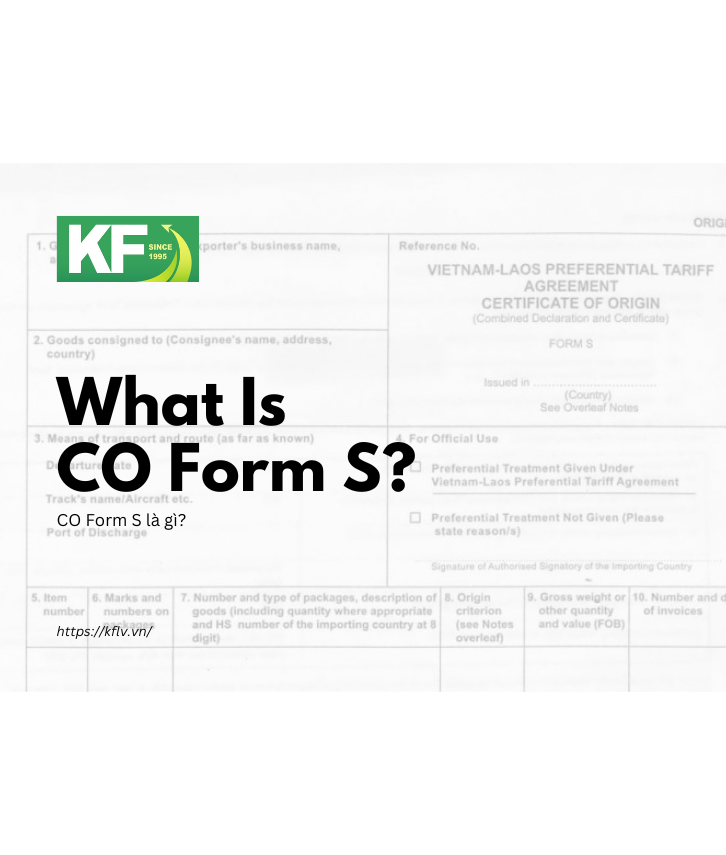Agricultural Exports: A Comprehensive Guide from A to Z

Are you planning to export agricultural products? To ensure a smooth and efficient export process, businesses must thoroughly understand the regulations, procedures, and required documentation. This article provides essential information to help you meet export standards and phytosanitary requirements.
Vietnam’s Agricultural Export Potential in 2024
In 2024, Vietnam’s agricultural exports promise significant growth opportunities driven by high global demand. Key products like rice, fruits, and seafood are expected to see substantial growth. Vietnam continues to assert its product quality, meeting the strict requirements of international markets.
Despite challenges such as El Niño and export bans, demand from countries like the Philippines and Indonesia still presents significant opportunities for rice exports. Fruits, especially durian and other tropical produce, also have great potential thanks to improvements in export processes and infrastructure.
Meeting Export Standards and Phytosanitary Requirements
Once agricultural products are approved for export to a partner market, meeting quality standards is a prerequisite. Key requirements include:
- Phytosanitary inspection of products.
- Irradiation to eliminate harmful bacteria.
- Sourcing from certified production areas.
- Maintaining pesticide residues within allowable limits.
- Absence of plant contaminants harmful to human health.
- Compliance with packaging and labeling standards.
- Clear traceability of product origin.
For products requiring cold storage, businesses must pay close attention to shipping and customs clearance times to ensure product quality.
Preparing Necessary Documents for Export
Businesses must prepare documents such as: quality certification, certificates of origin, fumigation certificates, and phytosanitary certificates. For first-time exporters, it is necessary to invite relevant authorities to sample and inspect the goods.
Customs Declaration
When the goods arrive at the port, the shipper or customs clearance service will file a customs declaration and complete the procedures for customs clearance and bill of lading. After the ship departs, businesses submit documents to the import-export management department to obtain certification.
Legal Policies
Ensure that the agricultural products intended for export are not on the list of prohibited items and comply with the regulations of both the exporting and importing countries.
HS Code and Export Tax
Businesses can search for the HS Code of the export item online via the Vietnam Customs website or international HS Code websites. Most export items currently enjoy a 0% export tax and 0% VAT.
Agricultural Export Documentation
The required export documentation includes: sales contract, commercial invoice, packing list, original bill of lading, certificate of origin, fumigation certificate, and phytosanitary certificate.
Phytosanitary Procedures
A phytosanitary certificate is mandatory when exporting agricultural products. Customs authorities have the right to confiscate and destroy goods, impose fines, or return the goods to the country of origin if this certificate is missing. The registration steps include:
- Registering an account.
- Registering the batch for phytosanitary inspection.
- Completing the sampling procedures for inspection.
- Filing an electronic declaration on the Regional Plant Quarantine Sub-Department website.
- Submitting the completed dossier to obtain the phytosanitary certificate.
Strict adherence to export-import procedures and fully meeting phytosanitary standards are key to ensuring that Vietnamese agricultural products not only penetrate but also sustain growth in international markets.
Businesses must meticulously prepare every step, from production and packaging to handling customs procedures, ensuring product quality and optimizing export profits. To achieve high efficiency, staying updated on the latest HS Code information, export taxes, and legal procedures is essential.
Contact King Freight Logistics Vietnam today for detailed consultation and comprehensive support on agricultural export procedures, helping your business succeed in the global market.
Written bykflv.vn
Other activities


Other news

CO Form S (Certificate of Origin – Form S) is a preferential certificate of origin issued for goods exported from Vietnam to Laos. It enables Vietnamese exporters to enjoy special tariff preferences under the Vietnam–Laos Bilateral Trade Agreement. This article explains what CO Form S is, its purpose, documentation requirements, and application procedure — along […]

